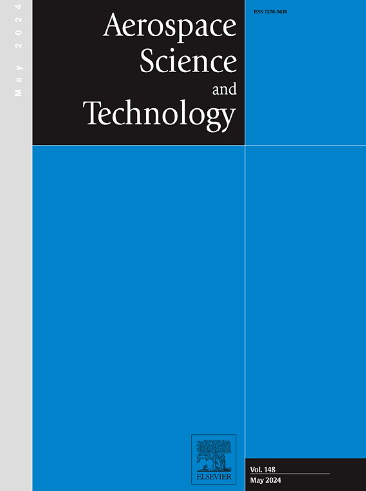Adaptive neural network based fixed-time attitude tracking control of spacecraft considering input saturation
IF 5
1区 工程技术
Q1 ENGINEERING, AEROSPACE
引用次数: 0
Abstract
Aiming at the issues of actuator saturation, inertia uncertainties, and external unknown disturbances in the attitude tracking control process of spacecraft, an adaptive fixed-time attitude control method is proposed, which is based on a radial basis function neural network (RBFNN). Firstly, a spacecraft attitude kinematics and dynamics model is established based on the quaternion method and a Gaussian error function is introduced to constrain the controller amplitude. Secondly, the external unknown disturbances are addressed by a fixed-time disturbance observer, and the controller is designed utilizing the backstepping method. To eliminate the adverse effects caused by actuator saturation, we design an enhanced auxiliary system to improve the stability of the system. Aiming at inertia uncertainties, RBFNN is used to approximate it, and an innovative fixed-time convergence adaptive law with RBFNN weights is devised. Subsequently, based on Lyapunov theory, the fixed time stability of the closed loop system is proven, and an expression for the settling time is given. Finally, simulation analysis validates the effectiveness of the designed controller.
考虑输入饱和度的基于自适应神经网络的航天器固定时间姿态跟踪控制
针对航天器姿态跟踪控制过程中的致动器饱和、惯性不确定性和外部未知干扰等问题,提出了一种基于径向基函数神经网络(RBFNN)的自适应定时姿态控制方法。首先,基于四元数法建立航天器姿态运动学和动力学模型,并引入高斯误差函数来约束控制器振幅。其次,利用固定时间扰动观测器处理外部未知扰动,并利用反步进方法设计控制器。为了消除执行器饱和带来的不利影响,我们设计了一个增强型辅助系统,以提高系统的稳定性。针对惯性不确定性,我们使用 RBFNN 对其进行近似,并设计了一种具有 RBFNN 权重的创新型固定时间收敛自适应法则。随后,基于 Lyapunov 理论,证明了闭环系统的固定时间稳定性,并给出了稳定时间的表达式。最后,仿真分析验证了所设计控制器的有效性。
本文章由计算机程序翻译,如有差异,请以英文原文为准。
求助全文
约1分钟内获得全文
求助全文
来源期刊

Aerospace Science and Technology
工程技术-工程:宇航
CiteScore
10.30
自引率
28.60%
发文量
654
审稿时长
54 days
期刊介绍:
Aerospace Science and Technology publishes articles of outstanding scientific quality. Each article is reviewed by two referees. The journal welcomes papers from a wide range of countries. This journal publishes original papers, review articles and short communications related to all fields of aerospace research, fundamental and applied, potential applications of which are clearly related to:
• The design and the manufacture of aircraft, helicopters, missiles, launchers and satellites
• The control of their environment
• The study of various systems they are involved in, as supports or as targets.
Authors are invited to submit papers on new advances in the following topics to aerospace applications:
• Fluid dynamics
• Energetics and propulsion
• Materials and structures
• Flight mechanics
• Navigation, guidance and control
• Acoustics
• Optics
• Electromagnetism and radar
• Signal and image processing
• Information processing
• Data fusion
• Decision aid
• Human behaviour
• Robotics and intelligent systems
• Complex system engineering.
Etc.
 求助内容:
求助内容: 应助结果提醒方式:
应助结果提醒方式:


